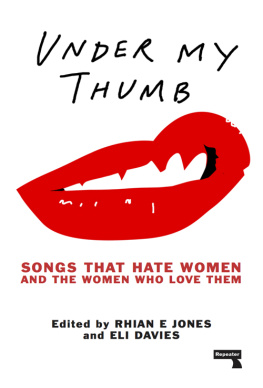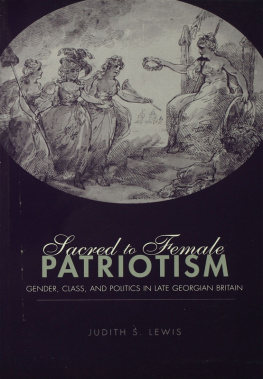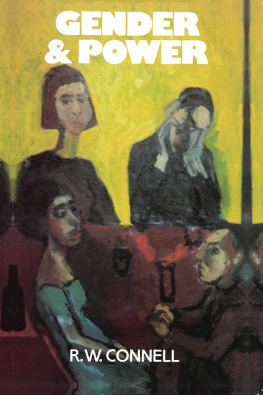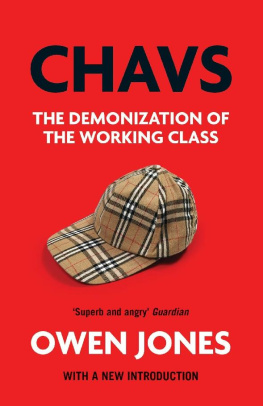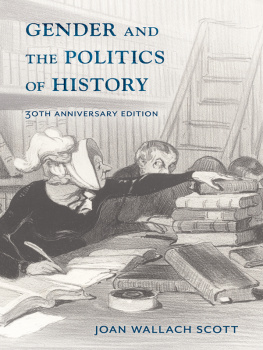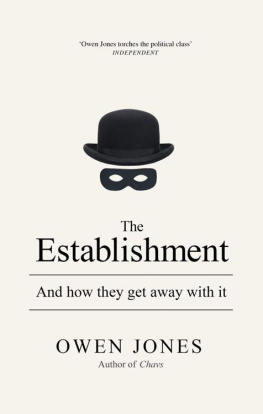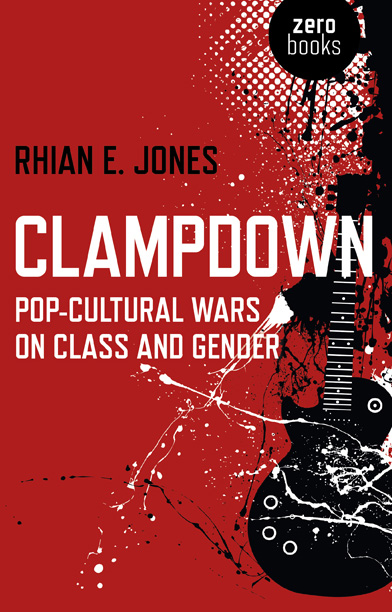Clampdown:
Pop-Cultural Wars on Class and Gender
Rhian E. Jones

Winchester, UK
Washington, USA
First published by Zero Books, 2013
Zero Books is an imprint of John Hunt Publishing Ltd., Laurel House, Station Approach, Alresford, Hants, SO24 9JH, UK
www.johnhuntpublishing.com
www.zero-books.net
For distributor details and how to order please visit the Ordering section on our website.
Text copyright: Rhian E. Jones 2012
ISBN: 978 1 78099 708 7
All rights reserved. Except for brief quotations in critical articles or reviews, no part of this book may be reproduced in any manner without prior written permission from the publishers.
The rights of Rhian E. Jones as author have been asserted in accordance with the Copyright, Designs and Patents Act 1988.
A CIP catalogue record for this book is available from the British Library.
Design: Stuart Davies
Printed and bound by CPI Group (UK) Ltd, Croydon, CR0 4YY
We operate a distinctive and ethical publishing philosophy in all areas of our business, from our global network of authors to production and worldwide distribution.
CONTENTS
2.2 90s:
2.3 00s:
For T. (place) and T. (person)
There is a husky voice which I have often heard, and heard only there, among working-class girls of the rougher sort; it is known among the more respectable working-classes as a common voice.
- Richard Hoggart, The Uses of Literacy (1957)
There are in fact no masses; there are only ways of seeing people as masses.
- Raymond Williams, Culture and Society 1780-1950 (1958)
INTRODUCTION:
THE GREATER ROCKNROLL SWINDLE
A given socio-historical moment is never homogeneous; on the contrary, it is rich in contradictions.
Antonio Gramsci
Rocknroll is not just an important part of our culture Its immensely important to the future of this country.
- Tony Blair, 1994
The picture taken in July 1997 at a Downing Street reception, showing a rictus-grinned Tony Blair in conversation with a barely more at ease Noel Gallagher, provided an iconic illustration of 1990s music and politics in anxious accord. Its self- assured counterpart, a token of Britpops compromised co- option, was the picture taken in September 2011 of Blur s former bassist Alex James playing far more relaxed host on his Cotswolds estate to not only David Cameron but also the tediously outrageous conservative opinion-giver Jeremy Clarkson. As grim and unsurprising as the rat-king of government, media and police which the 2012 Leveson Enquiry uncovered, this interlinking of the boorish, the buffoonish, and the born-to-rule seemed to showcase a new presiding order as definitive as New Labour s had been. Jamess involvement with a plutocratic elite which Marina Hyde immortalised as the arseoisie was a change from his Britpop days more in terms of setting than of attitude. In an interview on his retirement from the coke-and-champagne frontlines of Britpop and reinvention as a mock country squire, cynically shilling for both gentrifying lifestyle brand Daylesford Organic in liberal broadsheets and the fast-food industry in the pages of the Sun , James nevertheless declared politics just not my thing.
This book is a broadside aimed primarily at the ways in which class is represented and contested in popular culture, and how this relates to popular cultures oppositional potential. It is especially concerned with the intersection of class and gender representations in the figure of the working-class woman. Over the past twenty years, a queasy time of class confusion, class elision, and class erasure, neoliberalism has been asserted as strongly in British pop as in British politics. The treatment of working-class agency and identity in the cultural arena bears out the concept of popular culture as a critical site of contested hegemony. Indeed, given the alteration of the political and economic milieu over the past two decades, and the weakening hold of party and ideological ties as credible means of asserting opposition, the ways in which cultural space is occupied can hold as much if not more significance than the physical occupation of public space. A distinguishing mark of the 90s in Britain was a cultural shift from the nuanced and pluralistic articulation of identities to their appearance in a simulated or appropriated form, as stereotypes. Class, in particular, was reconfigured from an inherently political identity to one which could be temporarily occupied, communicated through signifiers which were increasingly abstracted, simplified, and stripped of meaning. Meanwhile, those who happened to be born with the same signifiers involuntarily bolted on were vanishing from public view, their place on the political and cultural stage taken by ersatz, commodified versions of themselves, in a process so seamless as to be sinister.
This books first section surveys a series of contradictions in the ways in which the idea of a British working class is used in political and media rhetoric. The years since the 2008 banking crisis, and the subsequent imposition of austerity measures across Europe, have brought an overdue acknowledgement that, despite the suppression of class in political and cultural discourse, socioeconomic background remains a stubborn and strengthening line of division. Commentators on the left and right have referred to a crisis of working-class representation in sites of decision-making power, which has been accompanied by a rise in political and media presentations of negative or mocking stereotypes of working-class identity, notably the chav. While Owen Joness Chavs: The demonization of the working class (2011) has provided the most prominent analysis of this, an increasing number of researchers and commentators are unmasking the hegemonic class hatred present in political and cultural depictions of chavs. Relatively little attention, however, has been paid to an especially pernicious aspect of the chav phenomenon: its use in promoting as beneficial or deserved policies on welfare, employment and reproductive rights which impact negatively on womens financial independence, sexual autonomy and social agency. Feminist commentators have criticized the impact on women of current government policy, but have been less explicit in connecting it with the concomitant onslaught of hegemonic stereotyping. This deficiency, partly the result of the unwillingness of mainstream liberal feminism to integrate a class dimension into its analysis or to broaden its academic, metropolitan and professional base of appeal, has coincided with the susceptibility of mainstream politicians, journalists and academics on the left and right to promote solutions rooted in reactionary or exclusionary ideals, leaving working-class women in a rhetorical and ideological blind spot.
Debates around chavs are, of course, part of a longer tradition in which class is constructed, imposed and resisted through the use of signifiers and stereotypes. As a word, the meaning of chav is impossibly contested, but as a specific idea, a commonly-understood stereotype, and an indiscriminate term of abuse for the poor, it has developed a peculiar and politically loaded edge. The combination figure of the chav identified by Owen Jones, Imogen Tyler, and Beverley Skeggs, among others, is a negative reimagining of the worse off by the better off: a phantom, a scapegoat, a folk devil. But this spectre did not spring fully formed from the brow of David Cameron, James Delingpole, Martin Amis or Matt Lucas. Instead, its path into the popular imagination was smoothed by a variety of pop-cultural tendencies which, through their appropriative, pathologising and mocking use of working-class signifiers and identities, softened us up for accepting the making of the chav. This books central section looks at some elements of indie music in 90s and 00s Britain, tracing how forerunners of and variations on the chav stereotype functioned to caricature and reconfigure class identity within it. Indie has, over the past decade, grown so uninspiring as to merit a succession of denunciations from within and without. These have focused variously on the abysmal quality of its landfill indie variant, its alleged takeover by privately-educated nu-folkers, and its almost total failure to respond to an increasingly harsh rightwards turn in British politics; the death of the protest song, in comparison to the political engagement of musicians in previous eras, has become a clich. What lies behind the draining of indies oppositional energy is surely not especially surprising: indie was, in its Britpop mutation, fashioned into a hegemonic form of popular music, making it a site of struggle for representation, and indie gained the ascendant in 90s Britain much as Labour did, by accommodating rather than challenging the Thatcher-Blair consensus and becoming a travesty of itself.


